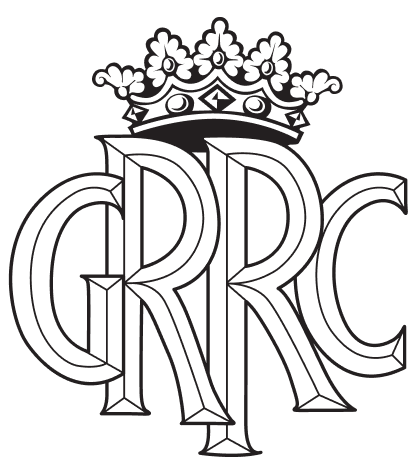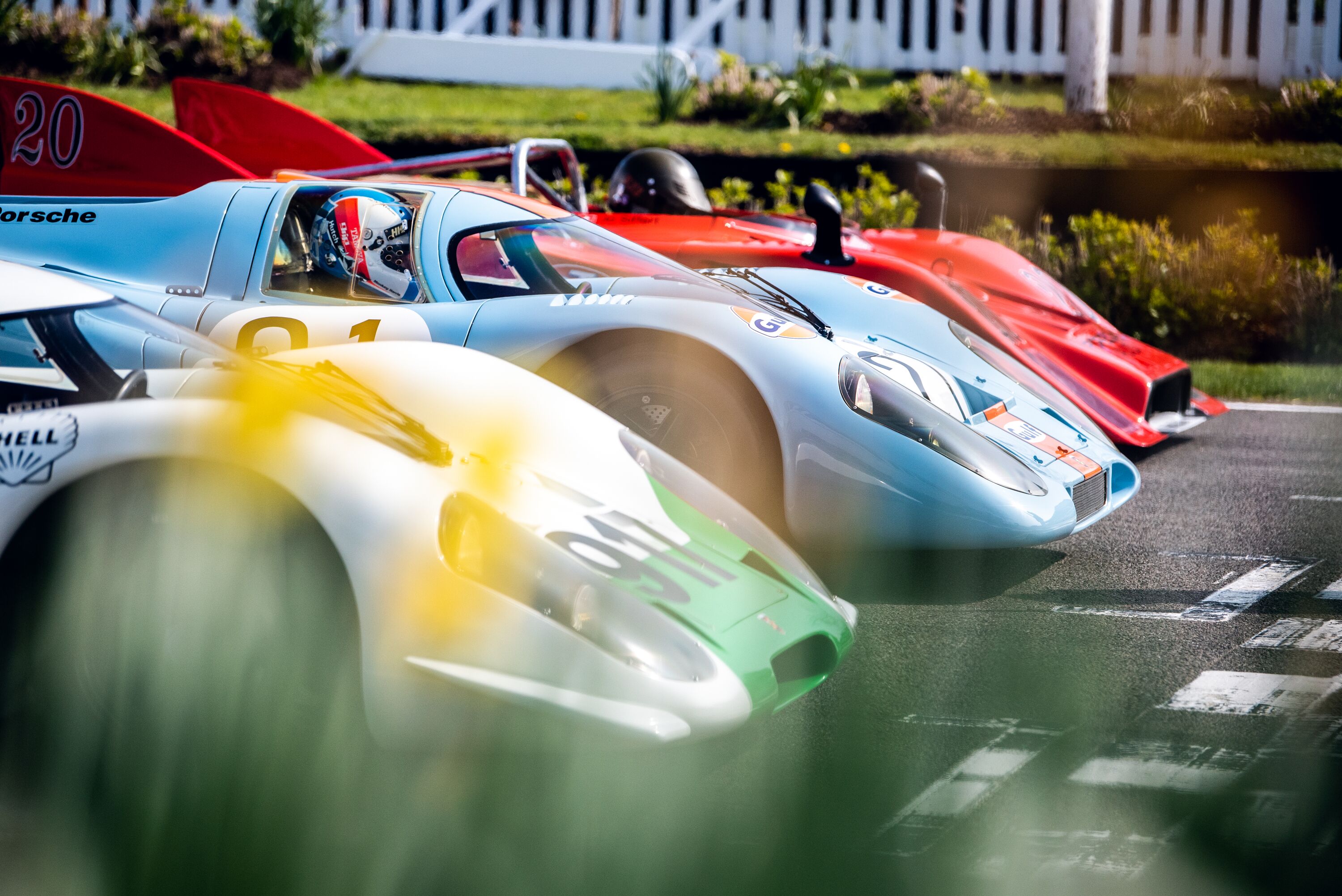60 years separate these Targa Florio winners
When it comes to our motorsport events at Goodwood, every race, parade, demonstration and display is carefully curated. Yet among all the painstaking research and planning, sometimes the best stories to arise are purely serendipitous. One such occasion was at the 80th Members’ Meeting presented by Audrain Motorsport. What was an incredibly rare encounter just had to be celebrated: the presence of both the first and last car to win the Targa Florio.

On appearance alone, it’s difficult to imagine how these two could be linked. The 1911 S.C.A.T. (Società Ceirano Automobili Torino) is from motorsport’s heroic dawn, when engineering was educated guesswork and racing required a leap of faith. It is a riot of brass dials and leather straps; the seats are part-wicker and the headlights look like they were designed by Jules Verne. It is a far cry from the sculpted lines, wings and scoops of the Martini-liveried Porsche 911 RSR.
Those among you that have done your homework, however, might guess at the connection, having recognised the #8 1973 911 RSR of Herbert Müller and Gils van Lennep, that won the last ever World Championship version of motorsport’s longest-running and toughest road race: the Targa Florio.

The 1911 S.C.A.T.
Andrew-Howe Davies’ 1911 S.C.A.T. is not the car that won the Targa Florio in 1911, that exact car no longer exists, but it is a genuine SCAT 22/32 chassis with the correct running gear and an American 9.0-litre Simplex engine. It’s presented very much in the way that it would have appeared on the start line in Cerda 112 years ago. Then, it was driven by Giovanni ‘Ernesto’ Ceirano, one of four remarkable brothers, shaped from the same futuristic mould as the irrepressible Vincenzo Florio, whose lives were interwoven with the history of both the Targa Florio and the Italian car industry.
The Ceirano’s were involved with racing from the outset. The eldest brother Giovanni Battista entered his own motorised bicycle in a race from Turin to Asti as early as 1895 but their impact on the early Italian car industry went much further than that. Both directly and indirectly, the ideas and creations of ‘Giovan’, Ernesto, Giovanni and Matteo could be found in Fiat, Itala, S.C.A.T., S.P.A. Ceirano and S.T.A.R. cars. Indeed six of the first nine Targa Florios were won by machines that Ceirano’s had influenced or designed. S.C.A.T.s won the race three times and in doing so secured their place in the history books, but perhaps their most memorable victory was in 1912.

Cyril Snipe was the nephew of a Manchester car dealer, John Bennett of Newton-Bennett, who was an agent for S.C.A.T. in the UK. Snipe worked in Turin with the Ceirano brothers and was chosen as their pilot for the seventh Targa Florio. Almost unbelievably, the route in 1912 circumnavigated the entire island of Sicily, one lap of 656 miles. Snipe drove the whole thing himself with his Italian riding mechanic Pardini. Having started in the early hours of Saturday morning he found himself beyond exhaustion as the race neared its conclusion. Unable to drive another yard he practically fell from the driver’s seat into a deep slumber at the side of the road. Pardini, after some two hours had elapsed, realised that no other competitors had passed and gently revived his pilot with a bucket of icy water. Enraged but undoubtedly awake, Snipe returned to the driver’s seat and won. His race took 23 hours and 37 minutes at an average of 24.3mph and he never drove the same corner twice.
It is not an exaggeration to say that the Ceirano brothers planted the seeds from which the entire Italian motor industry grew. They enjoyed racing success with S.P.A. and Itala winning the Targa Florio, the Coppa Florio and the epic Paris to Peking race in 1907. They discovered for themselves the link between winning races and selling cars, which manufacturers continue to pursue today. In fact, it was very much that incentive that drove the Porsche 911 RSR to victory in 1973.

The 1973 Porsche 911 RSR
Ferdinand Porsche’s innovations were driving development in the early 1920s and it was at the Targa Florio that he debuted DMG’s supercharged Mercedes which was driven to victory by Christian Werner. It was after the war however that the Porsche name became synonymous with the Targa Florio.
Unlike their early Italian counterparts who were driven by a wild enthusiasm and a pioneering creative spirit, Porsche’s racing success was a result of perseverance and logical engineering progression. Contrast the Ceiranos and Florios, Porsche was nearly bankrupt and racing success was a marketing necessity after the war. Funded by Ferdinand Piech and the success of the Beetle, Porsche’s racing programme traded on simplicity, attention to detail, fastidious preparation and lots of testing. It wasn’t long before its efforts were rewarded, with the first notable successes coming at the 1954 Carrera Panamericana and1956 Targa Florio with 550 variants.

Porsche then dominated in Sicily with 718s, the 904, the Carrera 6, the 910, 907, and 908 – each new development and design building on the lessons of its predecessor. The 908 was a purpose-built Targa Florio weapon, with its power and weight distribution perfectly matched to the twisting, undulating course. It made the Ferraris and Alfas look cumbersome by comparison. Changes to the Group 5 rules however, rendered Porsche's 908 and 917 prototypes uncompetitive.
Thus Porsche’s attention turned to the 911 and GT racing. Launched in 1972, the new RSR was a massive hit and proved reliable on track. To stay competitive though, Norbert Singer made several ‘creative’ modifications which by Vallelunga that year proved too much for the officials. In a bizarre twist of fate though, Singer was given the option to enter the 911 RSR as a Group 5 prototype. That meant Porsche could keep racing, disgruntled RSR customers (whose cars weren’t as quick as the modified works machines) could be appeased and Singer kept his job.

At the Targa Florio, Porsche’s good fortune continued as mechanical failure and driver error eliminated the Ferrari and Alfa Romeo front runners, gifting the last World Championship Targa Florio victory to the venerable 911. Singer and his team once again proved that; ‘to finish first, first you have to finish’. It may not have been a vintage battle but, with ten previous wins, it secured Porsche as the manufacturer with the most wins at the Targa Florio and forever bound their names together. An outright win at Daytona for the Brumos RSR proved it was no fluke either.
The S.C.A.T. and the Porsche that met at Goodwood are different in every possible way. The S.C.A.T. was born of a passionate, creative impulse and an obsessive compulsion to race; the Targa-winning 911 a reluctant response to officialdom, corporate pressure and a purposeful engineering philosophy. One very Italian and one very German. The truth is that there is very little to connect these two cars other than they won the hardest and most romantic race in the world, but what more excuse is needed to don the rose-tinted Ray Bans and bathe for a moment in the warm Sicilian sunshine?
Photography by Joe Harding, Nick Wilkinson and Toby Whales.
80MM
Members Meeting
Targa Florio
Porsche
911
RSR
S.C.A.T





